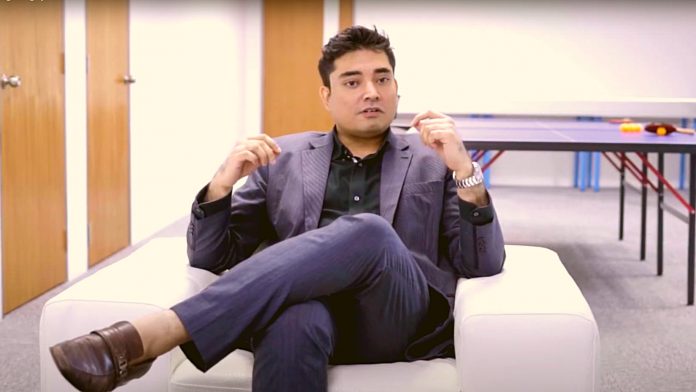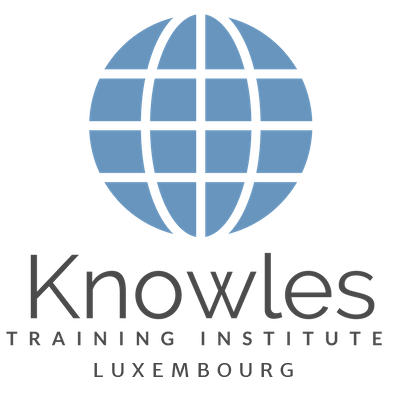The Magic of Memory and Motivation: An Interview with Sancy Suraj an Inspirational Speaker
Sancy Suraj, the CEO of Knowles Training Institute, The Umonics Method and Pinnacle Minds, is a well-known memory athlete, trainer, and keynote speaker. With a world record in the Guinness Book of World Records for the longest color sequence memorized, and six Singapore Book of Records in memorization feats, Sancy Suraj has taught over 10,000 people worldwide. In this interview, we will learn more about Sancy Suraj’s background, the strategies he uses to help people improve their memory and motivation, and how he has adapted his work during the COVID-19 pandemic.
 Can you tell us a little bit about your background and how you became interested in memory and motivation?
Can you tell us a little bit about your background and how you became interested in memory and motivation?
My background is in IT, where I worked as a software developer for several years. However, my passion for memory and motivation began at a young age. I was always fascinated by how some people could remember vast amounts of information, while others struggled to remember even the simplest things. This led me to explore the world of memory techniques and eventually become a memory athlete and trainer.
As for motivation, I was inspired by the power of the mind to achieve great things. I believe that anyone can accomplish their goals, as long as they have the right mindset and the motivation to succeed. I wanted to help people tap into their full potential and achieve their dreams, which is why I became an inspirational speaker and trainer.
My interest in memory and motivation led me to develop my own unique approach to training, which I call the Umonics Method. This method combines memory techniques with motivational strategies to help people achieve their goals and transform their lives. Through my work with the Knowles Training Institute, Pinnacle Minds, and as a keynote speaker, I have been able to share my knowledge and experience with thousands of people worldwide, helping them to unlock their full potential and achieve success.
What are some of the key strategies you use to help people improve their memory and stay motivated to achieve their goals?
One of the key strategies I use to help people improve their memory is to teach them memory techniques that allow them to store and retrieve information more effectively. These techniques include mnemonics, visualization, and association, which can be applied to a wide range of information and help to improve both short-term and long-term memory. I also emphasize the importance of practice and repetition, as these are essential for strengthening the neural connections that underpin memory.
To help people stay motivated, I focus on helping them to set clear, achievable goals and develop a plan for achieving them. I also emphasize the importance of cultivating a positive mindset, which involves focusing on the things that are within our control and finding ways to stay motivated even in the face of obstacles. Additionally, I encourage people to build a support network of like-minded individuals who can help them stay accountable and motivated.
Another important strategy I use is to help people understand the connection between memory and motivation. By showing people how their memory and motivation are linked, I can help them to develop strategies for enhancing both. For example, improving memory can help to boost motivation by allowing people to see progress towards their goals more clearly, while staying motivated can help to enhance memory by providing a sense of purpose and focus. By combining these strategies, I believe that anyone can achieve their goals and transform their lives.
You’ve achieved several world records and awards related to memorization – how do you stay motivated to keep pushing yourself to new heights in this area?
As someone who has achieved several world records and awards related to memorization, staying motivated to push myself to new heights in this area can be a challenge. However, one of the things that helps me stay motivated is setting new goals and challenges for myself. I believe that it is important to always be pushing ourselves to improve and grow, both in our personal and professional lives.
Another key factor that helps me stay motivated is having a sense of purpose and meaning in what I do. For me, that purpose is helping others to unlock their full potential and achieve their goals. Knowing that my work is making a difference in people’s lives gives me a sense of fulfillment and drives me to keep pushing myself to be the best I can be.
Finally, I believe that it is important to maintain a balance between work and rest. Taking time to recharge and rejuvenate is essential for staying motivated and avoiding burnout. This includes getting enough sleep, eating well, and engaging in activities that bring joy and relaxation. By maintaining a healthy balance between work and rest, I am able to stay motivated and continue pushing myself to new heights in the world of memorization and motivation.
“Staying motivated to push oneself to new heights in any field requires a combination of goal-setting, purpose-driven work, and self-care. By finding balance in these areas, we can achieve great things and make a meaningful impact in the world.”
Can you share some specific examples of people you’ve worked with who have been able to transform their memory or motivation through your training?
I have had the pleasure of working with many individuals who have been able to transform their memory and motivation through my training. One example is a student who came to me struggling to remember important information for his exams. By teaching him memory techniques and helping him to develop a study plan, he was able to improve his grades significantly and gain confidence in his ability to learn and remember.
Another example is a professional who was feeling stuck in her career and lacking motivation to pursue her goals. By helping her to clarify her goals, develop a plan of action, and cultivate a positive mindset, she was able to overcome her fears and take bold steps towards achieving her dreams.
Overall, what I have seen is that anyone can transform their memory and motivation with the right tools, techniques, and mindset. It is truly inspiring to see people overcome their challenges and achieve their goals, and I feel honored to play a role in helping them to unlock their full potential.
What do you think are some of the biggest misconceptions people have about memory and motivation? How do you work to dispel those myths?
One of the biggest misconceptions people have about memory and motivation is that they are innate abilities that cannot be improved. However, the truth is that both memory and motivation can be developed and strengthened with practice and the right mindset.
Another misconception is that memory techniques are complicated and difficult to learn. In reality, many memory techniques are simple and easy to apply, and can make a big difference in improving memory retention and recall. Additionally, people often assume that motivation is solely dependent on external factors, such as rewards or punishment. However, intrinsic motivation, which comes from within, can be cultivated and nurtured.
As a memory athlete and trainer, I work to dispel these myths by demonstrating how memory and motivation can be developed and strengthened with the right approach. Through my training programs and speaking engagements, I aim to empower people with practical tools and strategies that they can apply in their own lives to achieve greater success and fulfillment.
“Breaking the myths around memory and motivation is key to unlocking our true potential. By realizing that these abilities are not innate but can be developed, we can take control of our learning and personal growth, and achieve new heights of success.”
When asked about his background and how he became interested in memory and motivation, Sancy Suraj shared that he had a keen interest in mental fitness from a young age. He became fascinated with the human brain’s capabilities and began exploring ways to enhance memory and motivation. Through years of research and practical experience, he has become an expert in the field and has helped thousands of people improve their mental fitness.
Sancy Suraj shared several key strategies he uses to help people improve their memory and stay motivated to achieve their goals. He stressed the importance of starting small and staying consistent, as regular exercise and stimulation of the brain can improve memory retention over time. For motivation, he advised breaking down larger goals into smaller, more manageable steps and creating a rewards system to stay motivated along the way.
Throughout his career, Sancy Suraj has achieved several world records and awards related to memorization. When asked how he stays motivated to keep pushing himself to new heights in this area, he attributed his success to his passion for mental fitness and his desire to help others achieve their goals.
 How do you tailor your speaking engagements to different audiences, depending on their goals and needs?
How do you tailor your speaking engagements to different audiences, depending on their goals and needs?
Tailoring my speaking engagements to different audiences is a crucial aspect of my work as an inspirational speaker and memory trainer. Each audience has different goals, needs, and levels of experience with memory techniques and motivation strategies. Therefore, I adapt my approach based on these factors to ensure that my message resonates with the audience.
For example, when speaking to students, my focus may be on providing them with memory techniques to help them learn more effectively and efficiently. On the other hand, when speaking to corporate clients, I may focus on the role of motivation in the workplace and provide strategies to increase productivity and employee engagement.
Regardless of the audience, my goal is to deliver a message that is practical, actionable, and inspiring. I strive to provide real-world examples and interactive exercises that engage the audience and reinforce the key takeaways of my message.
In summary, tailoring my speaking engagements to different audiences involves understanding their specific goals, needs, and experience with memory and motivation, and adapting my approach to deliver a message that is practical, actionable, and inspiring.
What are some of the most memorable moments from your career as an inspirational speaker and memory trainer?
As an inspirational speaker and memory trainer, I have had many memorable moments throughout my career. However, some of the most memorable moments have been when I witness people experiencing breakthroughs in their memory and motivation.
For example, I remember working with a student who had previously struggled with remembering information for exams. After just a few sessions with me, she was able to utilize memory techniques to improve her grades and confidence. Witnessing her transformation and success was a truly memorable moment.
Another memorable moment was when I spoke at a corporate event, and several attendees shared with me how they had implemented the motivation strategies I had shared and saw significant improvements in their productivity and work satisfaction.
I have also had the privilege of meeting and working with some incredible individuals, including fellow memory athletes, entrepreneurs, and high achievers in various fields. Their stories and successes have been inspiring and have reinforced my belief in the power of memory and motivation to help people achieve their goals.
Overall, the most memorable moments in my career have been witnessing the transformation and success of individuals who have applied the memory and motivation strategies that I have shared. These moments reinforce my passion for helping people achieve their full potential.
How has the COVID-19 pandemic impacted your work as an inspirational speaker, and how have you adapted to continue reaching people during this time?
The COVID-19 pandemic has undoubtedly had an impact on my work as an inspirational speaker and memory trainer. With in-person events and workshops being canceled or postponed, I have had to adapt to virtual speaking engagements and online training.
However, I believe that this shift has also presented new opportunities to reach people all over the world who may not have had access to my services before. I have been able to conduct virtual workshops and training sessions with individuals and organizations in different countries, and the response has been positive.
To adapt to the virtual format, I have had to make some adjustments to my speaking and training style. For example, I have incorporated more interactive exercises and activities that can be done remotely. I have also had to ensure that my virtual presentations are engaging and impactful, despite the lack of physical interaction.
While the pandemic has presented some challenges, I am grateful for the opportunity to continue helping people improve their memory and motivation, even in these difficult times. I believe that with the right mindset and strategies, we can overcome any obstacles and achieve our goals.
You’ve authored several books on memory and motivation – can you tell us a little bit about your writing process and how you approach sharing your expertise in written form?
As an author of several books on memory and motivation, my writing process involves a lot of research, organization, and refinement. Before I begin writing, I spend a significant amount of time researching the topic and gathering information and data from various sources. This helps me ensure that my writing is well-informed and accurate.
Once I have enough information, I begin organizing my thoughts and ideas into an outline. This helps me structure my writing and ensure that I cover all the necessary points.
When it comes to actually writing, I try to stay focused and disciplined. I set aside dedicated blocks of time to work on my writing and aim to write consistently to maintain momentum.
After I have completed a draft of the book, I go through several rounds of editing and refinement to ensure that the writing is clear, concise, and impactful.
Overall, my approach to writing is similar to my approach to speaking and training – I aim to share practical strategies and insights that can help people improve their memory and motivation in a meaningful way.
What advice would you give to someone who is struggling with memory or motivation and doesn’t know where to start in improving those areas of their life?
For someone who is struggling with memory or motivation and doesn’t know where to start in improving those areas of their life, my advice would be to start small and stay consistent.
When it comes to memory, simple exercises such as practicing memorizing short lists or phone numbers can help improve memory retention over time. It’s important to not get discouraged if progress is slow at first, as the brain requires regular exercise and stimulation to improve.
For motivation, it’s important to identify specific, achievable goals and create a plan to reach them. This could involve breaking down larger goals into smaller, more manageable steps, or creating a rewards system to stay motivated along the way. It’s also helpful to surround oneself with positive influences and a supportive community to stay accountable and encouraged.
Lastly, it’s important to remember that improving memory and motivation is a journey, and progress takes time and effort. With dedication and the right mindset, anyone can achieve their goals and improve their mental fitness
“Starting small and staying consistent is the key to unlocking the potential of your memory and motivation. Remember, progress takes time and effort, but with the right approach and mindset, anyone can achieve their goals and improve their mental fitness.”
In conclusion, Sancy Suraj is a true inspiration when it comes to memory and motivation. His dedication to helping others improve their mental fitness has made a significant impact on countless lives worldwide. Through his practical strategies and insights, he has shown that with dedication and the right mindset, anyone can achieve their goals and improve their mental fitness.

